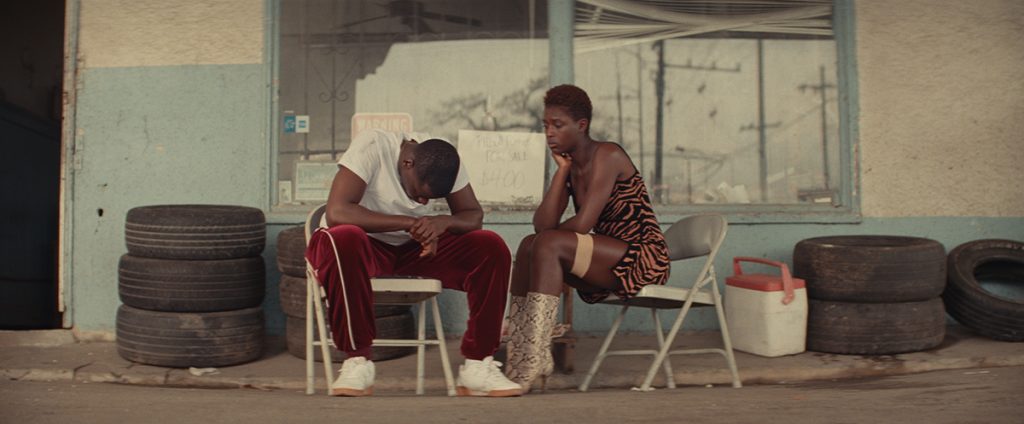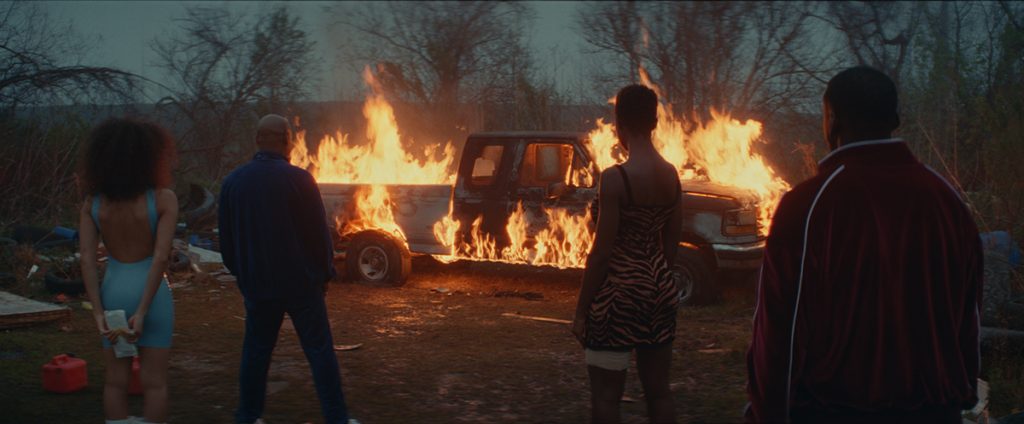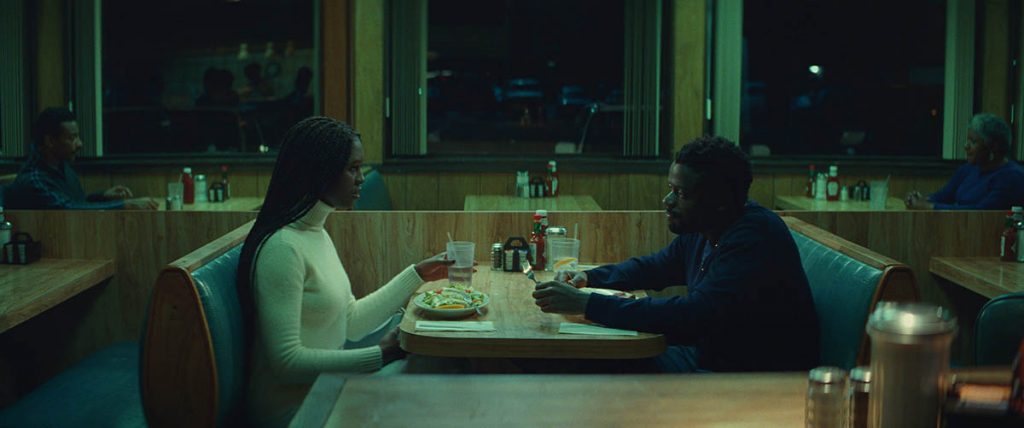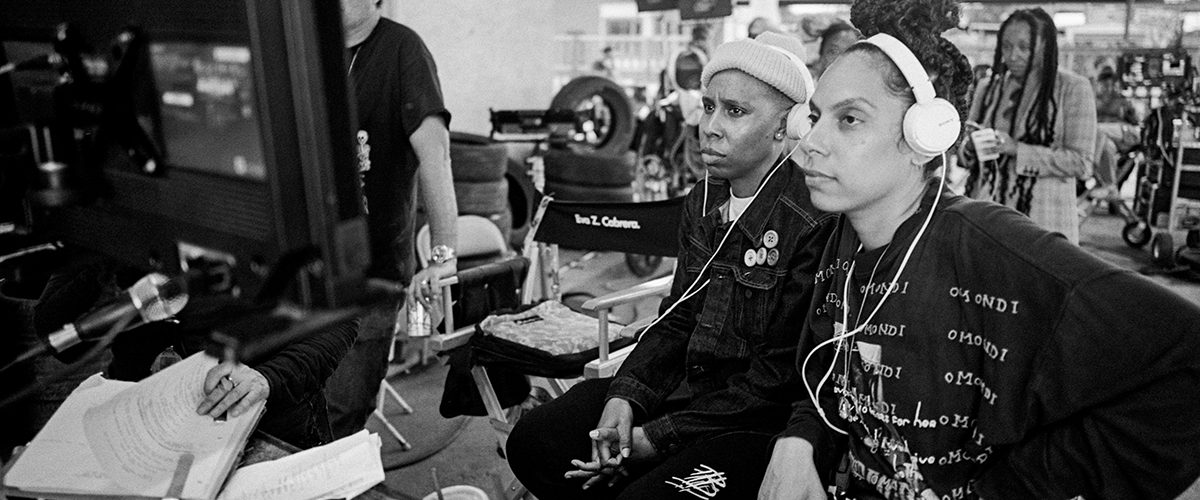When Queen and Slim meet for a Tinder date they are far from a match made in heaven. She has too much attitude for his liking, and she hates his taste in music and the loud noises he makes while eating.
Though not from a privileged background, Queen is a qualified attorney – and ‘excellent’ attorney, she tells him.
“Why do black people always feel the need to be ‘excellent’?” he asks, in one of many forensic incisions this film makes into the body of contemporary African America.

An uncomfortable evening turns into the first date from hell, when Slim gets pulled over by a traffic cop on a minor pretext. Though the policeman is careful and formal in his use of language, his angry prejudice oozes through his demeanour and his every action. Tempers rise and a struggle ensues, leaving Queen slightly wounded in the leg, and the cop lying dead at the curb side – shot with his own gun.
Slim’s first instinct is to wait for the authorities to arrive and try to explain things.
“I’m not a criminal,” he tells Queen.
“You are now,” comes the blunt reply. They go on the run.
Director Marina Matsoukas’s Queen & Slim is a Thelma & Louise for the ‘Black Lives Matter’ era – a picaresque road trip, set in motion by violence born of prejudice, in which the co-protagonists strive to reach a place of freedom (here, Cuba not Mexico). As in Thelma & Louise the quest sets in relief injustices underlying American society (in this case, racism rather than misogyny). As with Ridley Scott’s classic (so marvellously scripted by Callie Khouri) there is humour and love alongside the injustice and bloodshed. However, whereas the 1991 feminist classic often feels like two women alone against the world, this young black couple, learning and growing as they travel, find allies in unexpected places.

Queen and Slim are not Bonnie and Clyde, they’re not in search of fame and fortune. Nevertheless, for many they encounter, they have become a cause célebre. What Queen and Slim want most is freedom and, as they discover as their odyssey continues, each other.
“Let me be your legacy.”
However, Cuba is a long way away…
The movie offers general principles about Trump’s America (not that the man himself features): as a rule, African Americans will stand together against police brutality; as a rule, ex-servicemen, irrespective of colour, will come through for each other in a crisis. But all rules have exceptions and, when you’re running for your lives, any exception can be deadly.
As Queen, Jodie Turner-Smith drips style and attitude (along with a deep-rooted vulnerability). It’s not hard to see why the decent, determined (but not always smart) Slim (Daniel Kaluuya) would fall for her, nor (once he’s sorted out his eating habits) why she should fall for him. Kaluuya follows up his acclaimed performance in Get Out with a thoroughly convincing turn, here.

The nature of the tale means many of its finest moments lie in cameos and episodes along the way. The stop off at a roadside blues club is a delight and, Bokeem Woodbine’s 15 minutes as Uncle Earl set the screen alight as the ex-GI turned small-time pimp. As one of his “girls”, Goddess (deliciously portrayed by Indya Moore) puts it: “He needs us to worship him. He ain’t shit out there. But here, he’s king.”
Just as it would have been a mistake to write off Thelma & Louise as a film for women rather than a film about women that all should see, Queen & Slim should be approached as a film about African Americans we all need to see.
★ ★ ★ ★ ★Queen & Slim is released on 31 January 2020 and is showing at Home, Manchester.





